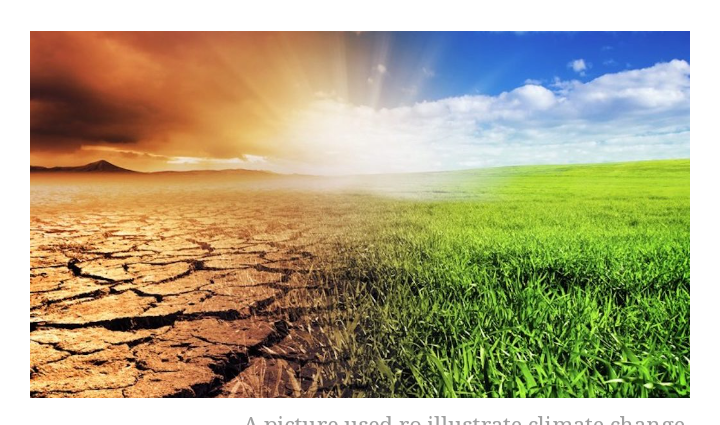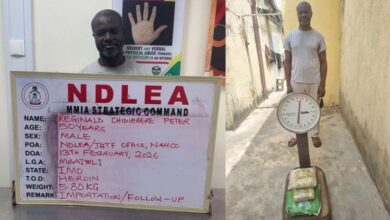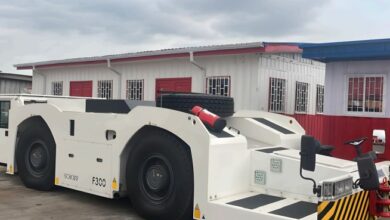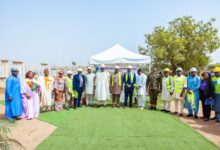Stakeholders Seek Climate Finance, Investment Mobilisation For Agricultural Adaptation
...Prioritise Adaptation Agenda In Review Of NAPS, NCDs At COP28, African Leaders Told

By Edu Abade
Ahead of COP28 slated for Dubai, United Arab Emirates (UAE) between November 30 and December 12, 2023, climate change activists, civil society groups and media practitioners have canvassed the urgent need for corporations, institutions and government at all levels to engage in robust climate finance and investment mobilisation for agricultural adaptation in Nigeria and Africa.
They argued that only such action would effectively ensure that communities impacted by climate change overcome the negative effects of the climate crises on the environment and guarantee food, water safety in efforts to achieve a healthier and sustainable planet.
This was the position of participants of a one-day training workshop on Climate Finance and Investment Mobilisation for Agricultural Adaptation in Nigeria, organised by the Climate and Sustainable Development Network (CSDevNet) in Lagos.
The workshop brought together over 30 civil society, community representatives, women, young people and journalists among others, with the discussions centering on the need to work collaboratively towards ensuring climate finance mobilisation and enhancement of the capacity of journalists to tell more effective climate-related stories through a more gender-sensitive lens.
In his opening remarks, Media Thematic Lead, CSDevNet and Editor-in-Chief of EnviroNews, Michael Simire stressed the importance of educating CSO operatives, youths, women and media practitioners on the need to effectively work together towards ensuring climate finance mobilization with the aim of building the capacity of journalists to tell more effective climate stories through a more gender-sensitive lens.
He said: “The focus on Agriculture is apt, as agriculture and food systems remain one of the major negotiation streams at COP28, the UN Climate Change Conference that commences in Dubai, United Arab Emirates (UAE) in a few weeks.
“Some other streams include the Loss and Damage Fund, Global Stocktake, Global Goal on Adaptation and Finance, Energy Transition and Renewables as well as Phase Out or Phase Down of Fossil Fuels.
He explained that with focus on some major outcomes of the Forum of Agriculture held earlier in Abuja, it was agreed that accelerating access to climate finance remains crucial for African countries to combat the adverse effects of climate change.
Citing Climate Smart Agriculture, he said it was also resolved that African leaders must prioritise the adaptation in agriculture, by ensuring that agriculture is recognised as critical to the adaptation agenda.
Simire also charged governments of African countries to prioritise and anchor adaptation imperatives for the agricultural sector when reviewing their National Adaptation Plans (NAPs) and Nationally Determined Contributions (NDCs), among others.
In a communiqué issued at the end of the workshop, the participants pointed out that there is a huge disconnect between climate policies and initiatives at the federal level in Nigeria and what is obtains in local communities where the impacts of climate change are mostly felt, adding that despite the availability of huge financial resources for climate adaptation, such resources are not channeled to agricultural adaptation in Nigeria and Africa.
“Climate Change is happening faster than previously anticipated and agriculture is vulnerable on a global scale but most especially in Nigeria and across Africa. Climate risk reduction strategies and early warning systems at the national level have improved significantly, but do not have trickle-down effect to the farmers and vulnerable communities that need such information to determine their actions
“There is divergence of views on climate change adaptation among civil society and the journalists who report the situation on ground. These impact the quality of stories published on the subject matter
“The mammoth investment opportunities needed to make Nigeria’s agricultural sector resilient are largely untapped due to lack of synergy and financial support across sectors. Climate change impacts vary for men and women. Unfortunately, the vulnerabilities of women are largely ignored and they are equally excluded in the discussions and decision-making processes,” it said.
They also observed that there were pockets of adaptation practices and initiatives in different communities across the country, but they are not getting the requisite support at the federal and state levels
The participants also lamented that successful climate adaptation strategies and initiatives at the grassroots level across Nigeria are not adequately reported or spotlighted in the media due to capacity issues on the part of journalists.
They, therefore, recommended that there is the need for government agencies and ministries involved in climate change policies to synergise with states and local governments, insisting that autonomy of local governments remains key to ensuring trickle down effect at the grassroots level.
“There is the need to remove impediments faced by local farmers in their quest to access investment opportunities needed to make Nigeria’s agricultural sector resilient and prioritisation of agriculture as well as the role of farmers in climate adaptation plans and policies of government.
“Sustained engagement between civil society and the media through workshops and trainings are necessary for harmony of views on climate change adaptation, which will impact on the quality of stories published on the subject matter.
“There is also the need for amplification of climate change impacts in a balanced manner that addresses and gives prominence to the varying impacts of climate change on both men and women. Women must also be part of decision-making processes and impediments to their inclusion removed.”
It equally harped on the need for recognition and amplification of success stories of climate change adaptation initiatives at the grassroots levels. Such initiatives should also be adequately spotlighted in media reports and capacity building training for journalists on adequate reporting of climate change with particular emphasis on adaptation as against mitigation.











